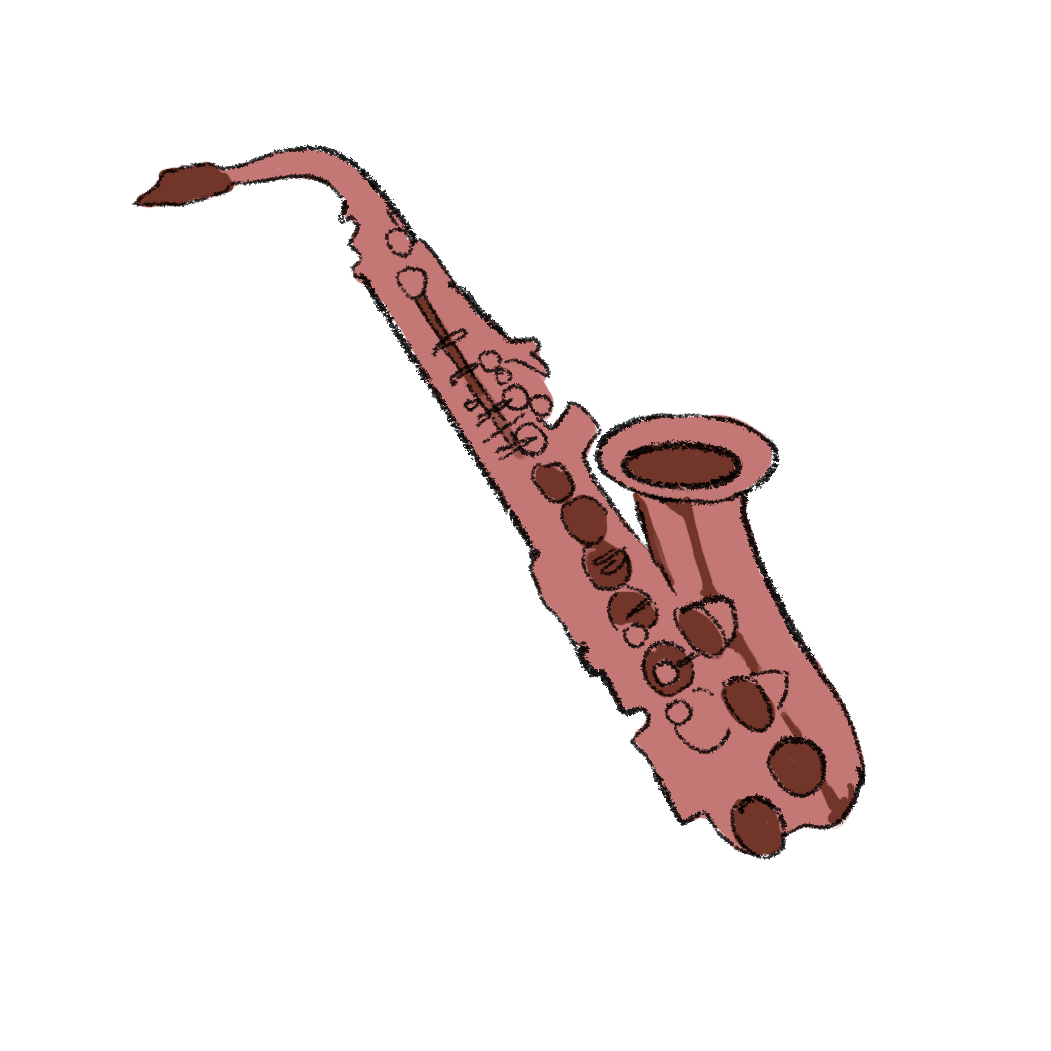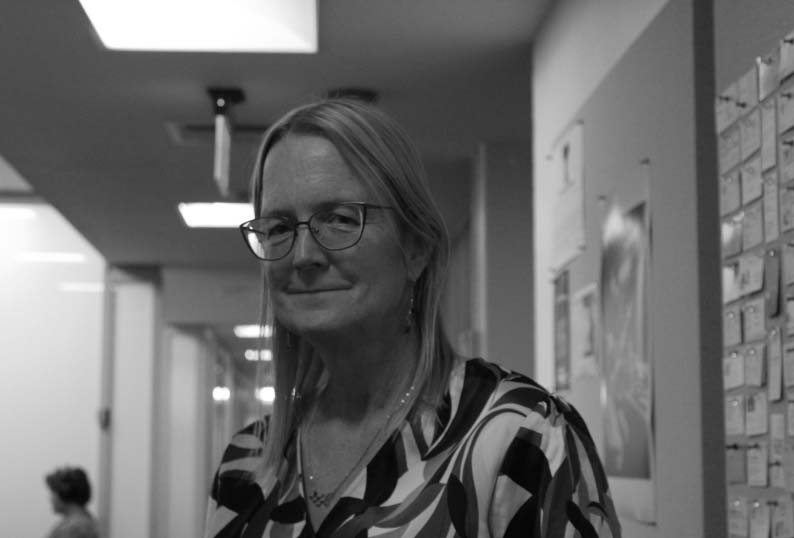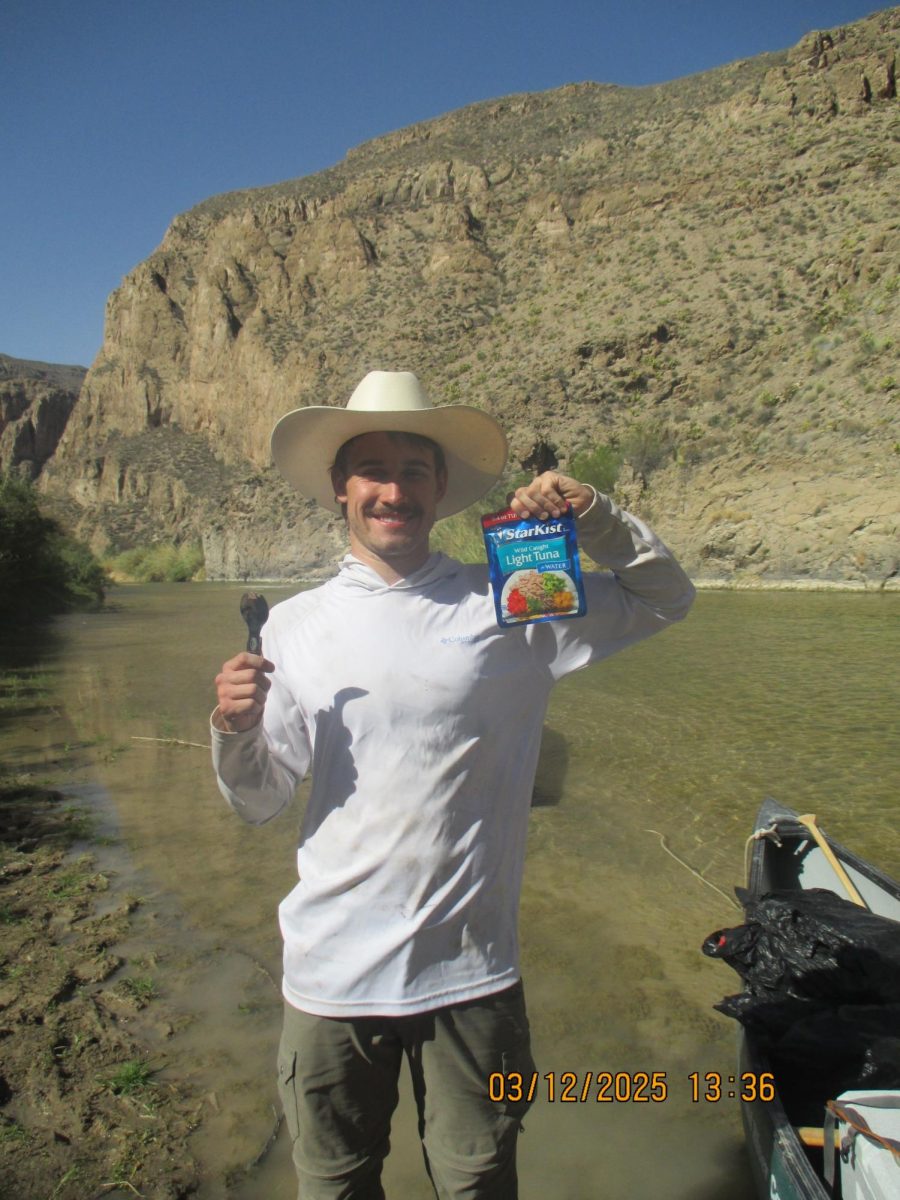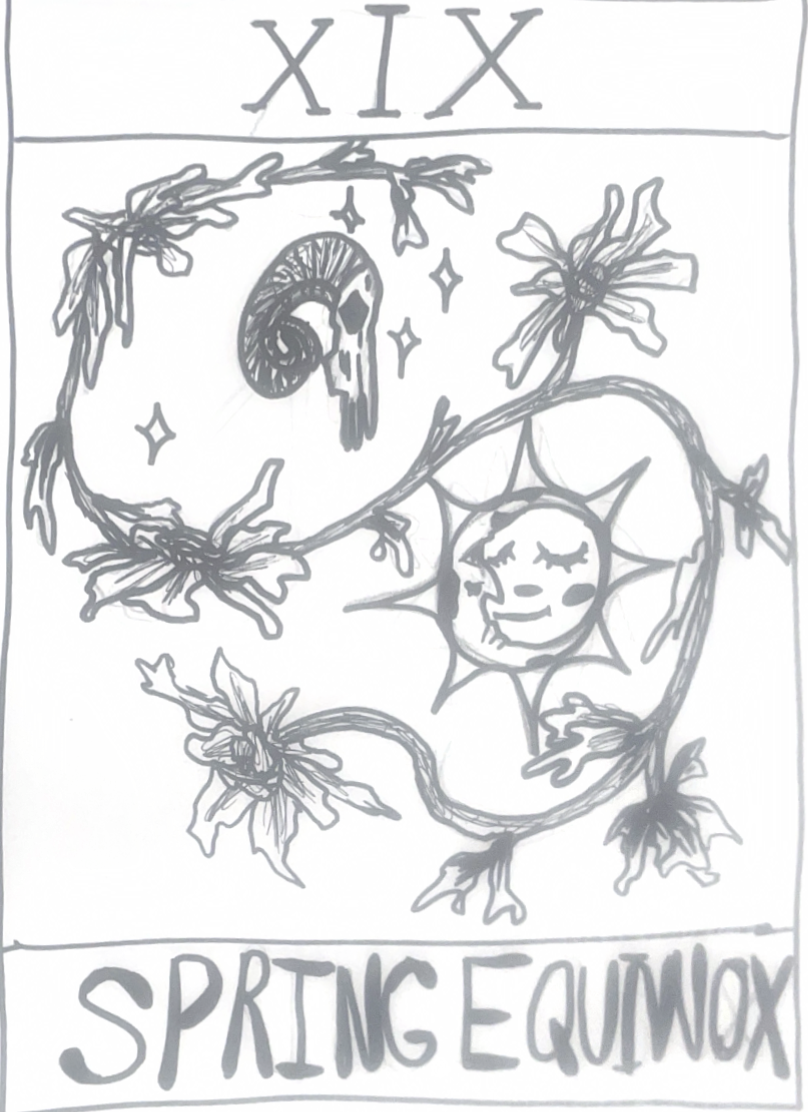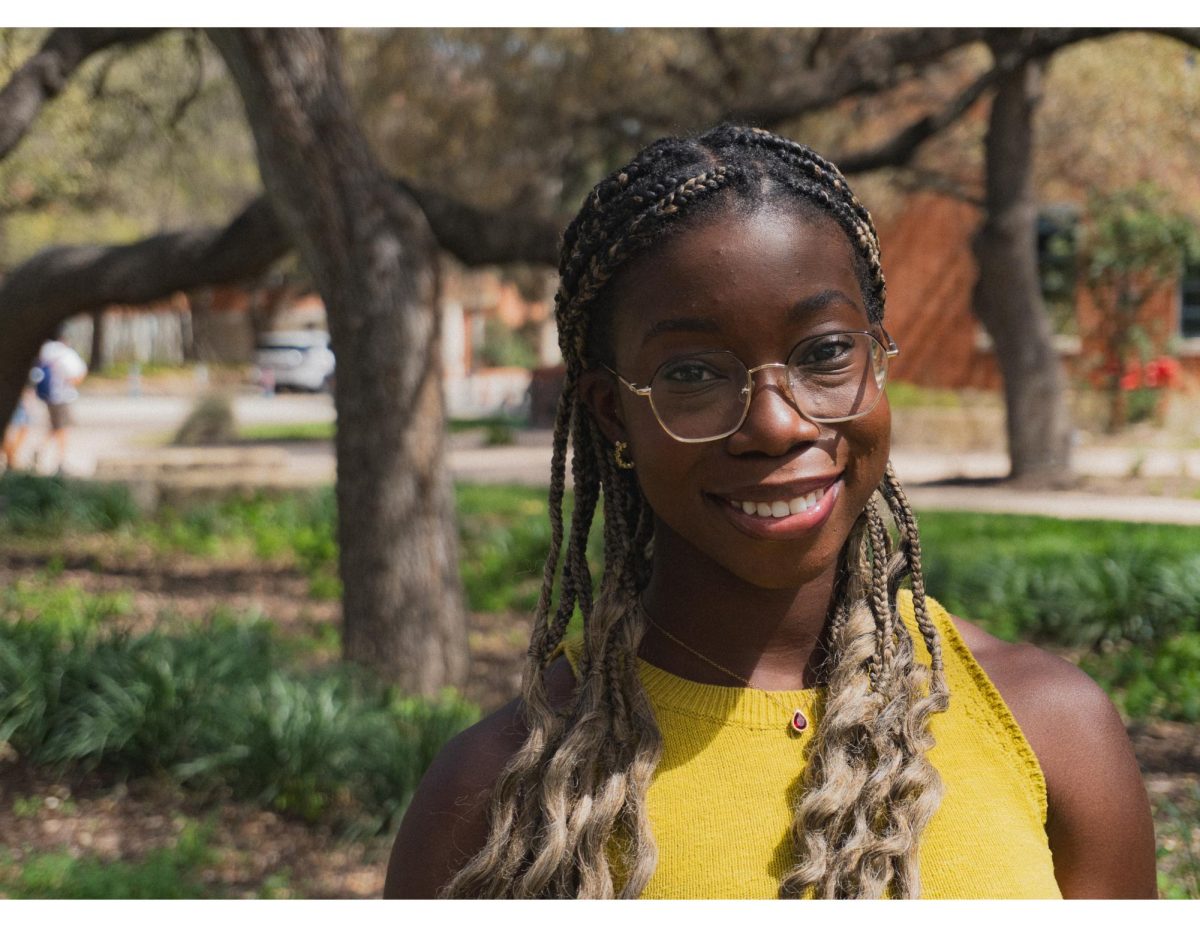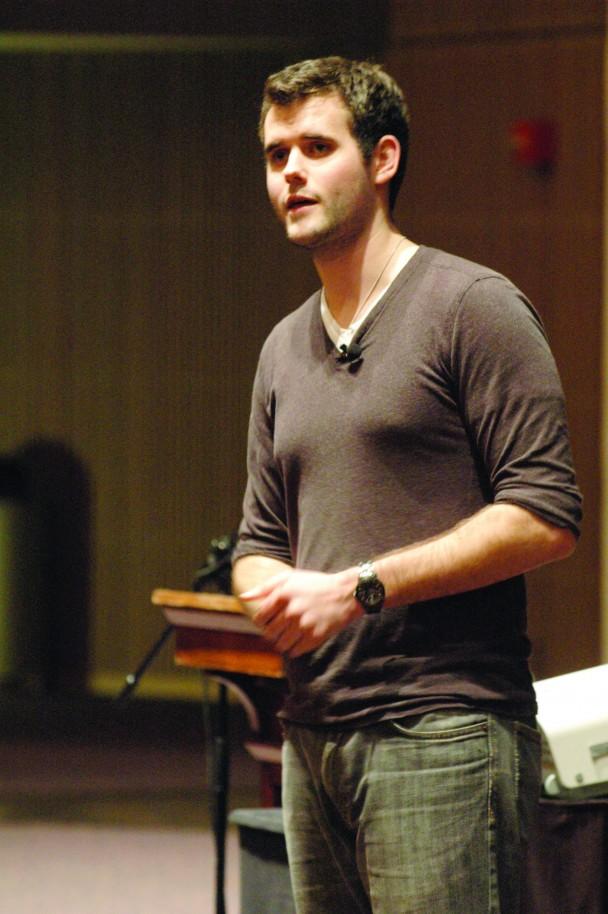 Zach Wahls, an Iowa State engineering student and gay rights activist, spoke to students Monday, April 9, in Laurie Auditorium. Wahls entered the public sphere when a video of the speech he gave to the Iowa House of Representatives in January of 2011 went viral.
Zach Wahls, an Iowa State engineering student and gay rights activist, spoke to students Monday, April 9, in Laurie Auditorium. Wahls entered the public sphere when a video of the speech he gave to the Iowa House of Representatives in January of 2011 went viral.
The speech in January of 2011 argued against the passage of House Joint Resolution 6, an amendment to Iowa’s constitution that would define marriage as a union between one man and one woman. HJR 6 passed the Republican-controlled Iowa House of Representatives in a 62-37 vote but died when it reached the Democrat-controlled Iowa Senate.
Since his testimony during the debate about HJR 6 made its way to the Internet, Wahls has been making appearances at colleges and conferences across the nation.
The speech he gave to students Monday night was titled “What Makes a Family” and was broken into three parts.
The first part focused on the common questions Wahls receives when people find out his parents are lesbian. Wahls explained that he has often received the uncomfortable question, “Are they hot?”
Outside of this inquiry, people are curious about Wahls’ relationship with his father and the naturalness of both his conception and the relationship of the women who raised him.
In regard to his desire to meet his father, Wahls clearly stated that it was not one of his major concerns.
“I don’t long to meet donor 1033; I just don’t. Now, am I grateful he donated? You bet. Do I think it would be interesting to sit down with him and maybe get to know him a bit over a pitcher of beer? Sure. Do I have any interest in inviting him to family functions, like Thanksgiving or Christmas? Absolutely not,” Wahls said.
Concerning the naturalness of his conception and his mothers’ relationship, Wahls had equally definitive answers.
“Biologists have documented homosexuality in over 1000 different animal species. They’ve only documented homophobia in one,” Wahls said.
He continued to explain that there is an important difference between “natural” and “normal.” Thus, while artificial insemination, the method through which Wahls was conceived, is not natural, it is a normal medical procedure.
Wahls ended this part of his speech by explaining his answer to the question “why does marriage matter?” The explanation relied on two stories. The first involved a young woman who was married religiously but could not afford to marry her husband legally and the grief she felt when she still had to check “single” on her tax return. The story conveyed the emotional stress of being unable to publically and legally declare devotion to a partner. The second story featured an incident that occurred when his mother Terry has severe head pain, a symptom of her multiple sclerosis, and the doctor in the emergency room refused to listen to her partner, Jackie, because the couple was not married. Between these two stories, Wahls came to a simple conclusion.
“Marriage matters because it could have prevented my mom from experiencing the single most painful night of her life,” Wahls said.
Part two of Wahls’ presentation focused on the nationwide debate about gay marriage in which the United States is currently engaged.
He began his discussion of the debate with a warning.
“This is a very uncomfortable topic for a lot of people. How many other issues in American culture combine politics, religion, sex and anal sex, to boot?” Wahls said.
Wahls also commented on the belief that gay marriage and rights is an assault on normalcy and causes no small amount of fear and emotion on both sides of the debate.
“There’s a lot of fear. Fear on the one side that this is an assault on tradition, an assault on normalcy, it’s an assault on my religious heritage, my religious beliefs and, because for so many people religious beliefs are an integral part of their own identity, it feels like an assault on them personally.” Wahls said. “And then there’s fear on the other hand. Of course, people like my moms who are being deprived of their legal rights, their legal protections that cause those nights in the emergency room, being deprived of that equal status with their coworkers, with their friends, their other family members.”
Wahls reminded audience members about the importance of respecting both sides of the debate, and about the importance of the specific words used. Specifically, he addressed the fact that many marriage equality opponents would prefer to not call gay marriage “marriage.”
He asserted that the marriage people associate with the word “marriage” is not the one that is up for debate. Marriage, or the legal union of two people, takes place in a court house in front of a judge via a piece of paper, and it is this marriage that Wahls argues should be available to all couples regardless of gender.
“It’s that signature that gets you the 1,138 federal rights, privileges and protections and between 400 and 600 additional rights, privileges and protections depending on which state you live in. There’s a lot at stake here,” Wahls said.
The final portion of Wahl’s speech focused on his own experiences growing up with lesbian parents.
He discussed the struggles he faced in elementary and middle school when classmates found out he had two moms as well as his growth as an individual that gave him the confidence to publically defend his mothers and gay citizens in general.
When he was a senior in high school, he wrote a column in his high school newspaper that was sent to the city paper then to the state newspaper and ultimately led to his speech in front of the Iowa House of Representatives.
Wahls ended his speech with three quotations. The first was from Harvey Milk, the first openly gay politician in America. Milk famously said, “We have to come out, come out wherever you are,” a testament, in Wahls’ eyes, to the power of people and their stories.
The second quotation was from Nelson Mandela, former South African Prime Minister. Mandela said, “Our greatest fear is not that we are inadequate, but that we possess power beyond measure.” Wahls believes this quotation is more applicable than ever in the information age because technology gives everyone a platform upon which to share there stories.
The final quotation came from Martin Luther King Jr., civil rights activist. King said, “The moral arc of the universe is long, but it bends towards justice,” a statement Wahls had something to add to.
“It bends towards justice not of its on volition. It bends towards justice because we stand up and pull that arc and pull in that direction,” Wahls said.
Wahls’ presentation was made possible by Greek Council and Sexual Diversity Alliance.

